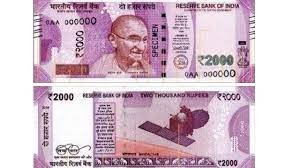In a surprising move, the Reserve Bank of India (RBI) recently announced the withdrawal of ₹2,000 notes from circulation, leading to a significant political backlash. The suddenness of this decision prompted opposition leaders to question the about-turn, given that the denomination was introduced just seven years prior in 2016. Amidst the uproar, Delhi Chief Minister Arvind Kejriwal launched a scathing attack on Prime Minister Narendra Modi, while Bharatiya Janata Party (BJP) member Khushbu Sundar retaliated with her own remarks.
Arvind Kejriwal, known for his outspoken nature, wasted no time in seizing the opportunity to criticize the Prime Minister. He accused Modi of being uneducated, implying that the decision to withdraw ₹2,000 notes lacked sound reasoning or proper consideration. Kejriwal’s comments were met with mixed reactions, with his supporters applauding his boldness and opponents labeling his remarks as politically motivated.
In response to Kejriwal’s attack, Khushbu Sundar, a prominent BJP leader, took to social media to counter the criticism. Sundar claimed that some individuals, like Kejriwal, tend to become arrogant when they gain power and accumulate wealth suddenly. Her tweet aimed to highlight what she perceived as a sense of entitlement and superiority that can arise in certain individuals once they assume positions of authority.
The withdrawal of the ₹2,000 notes has stirred up a broader political debate. Critics argue that the decision lacks transparency and has the potential to disrupt the economy, particularly the informal sector that relies heavily on cash transactions. They argue that the sudden withdrawal will cause inconvenience to businesses, traders, and ordinary citizens who heavily rely on these notes for their day-to-day transactions.
On the other hand, supporters of the decision argue that it is a necessary step to combat black money, counterfeit currency, and other illicit activities. They contend that the withdrawal of high-value currency will encourage the use of digital payment methods and promote a more transparent economy. Additionally, they believe that the move will help track and curb the flow of illegal funds and money laundering.
While the political exchange between Kejriwal and Sundar drew attention, it is important to note that their comments reflect the broader sentiment among opposition and ruling party members. The withdrawal of ₹2,000 notes has become a contentious issue, with various political parties using it as an opportunity to score points against their rivals.
As the debate continues, it remains to be seen how the withdrawal of ₹2,000 notes will impact the Indian economy in the long run. The RBI’s decision has certainly sparked intense discussions about the effectiveness of such measures and their potential consequences. It has also brought to the forefront the political divide and the clashing perspectives on economic policies in the country.
The RBI’s sudden announcement to withdraw ₹2,000 notes from circulation has led to a significant political backlash. Arvind Kejriwal’s attack on Prime Minister Narendra Modi and his remarks about the lack of education behind the decision have been met with strong reactions. Khushbu Sundar’s response, accusing Kejriwal of arrogance, further escalated the political discourse. The decision itself has ignited a broader debate regarding its implications for the economy, with both critics and supporters voicing their concerns and justifications. The withdrawal of ₹2,000 notes will undoubtedly continue to be a topic of contention, highlighting the differing viewpoints and political strategies within the Indian landscape.







